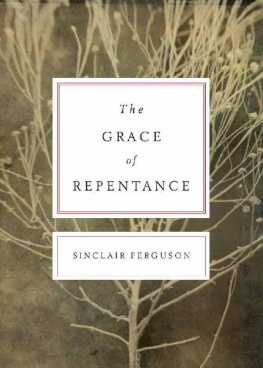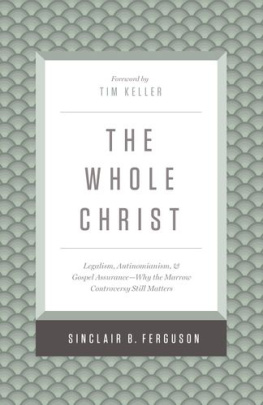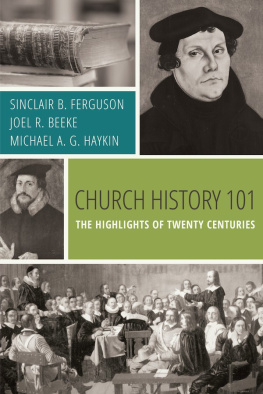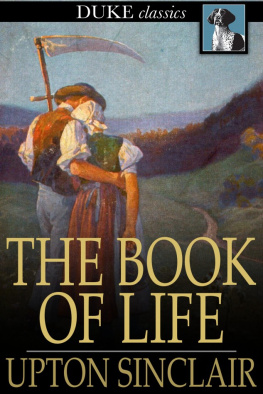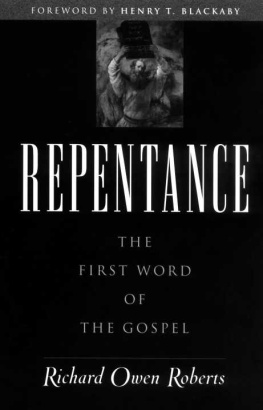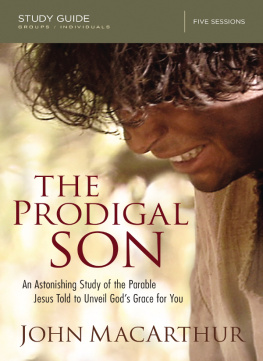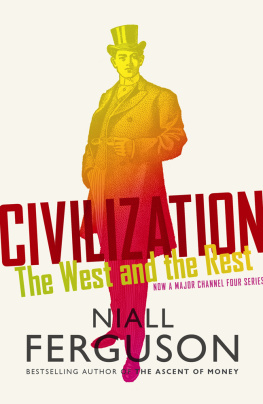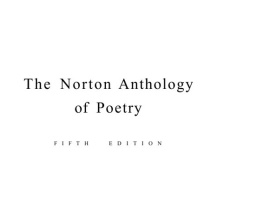T HE G RACE OF R EPENTANCE
The Grace of Repentance
Copyright 2010 by the Alliance of Confessing Evangelicals
Published by Crossway Books
1300 Crescent Street
Wheaton, Illinois 60187
All rights reserved. No part of this publication may be reproduced, stored in a retrieval system, or transmitted in any form by any means, electronic, mechanical, photocopy, recording, or otherwise, without the prior permission of the publisher, except as provided by USA copyright law.
The Alliance of Confessing Evangelicals exists to call the church, amidst our dying culture, to repent of its worldliness, to recover and confess the truth of Gods Word as did the Reformers, and to see that truth embodied in doctrine, worship, and life.
Cover design: Studio Gearbox
Cover photo: iStock
First printing 2000
Reprinted with new cover 2011
Printed in the United States of America
Scripture taken from THE HOLY BIBLE: NEW INTERNATIONAL VERSION. Copyright 1973, 1978, 1984, 2010 by Biblica, Inc. TM Used by permission.
All rights reserved worldwide.
ISBN 13: 978-1-4335-1983-3
ISBN 10: 1-4335-1983-6
ePub ISBN: 978-1-4335-1986-4
Mobipocket ISBN: 978-1-4335-1985-7
PDF ISBN: 978-1-4335-1984-0
Library of Congress Cataloging-In-Publlcation Data
Ferguson, Sinclair B.
The grace of repentance / Sinclair B. Ferguson.
p. cm. (Todays issues)
Includes bibliographical references.
ISBN 1-58134-165-2 (trade pbk. : alk. paper)
1. RepentanceBiblical teaching. I. Title. II. Todays issues
(Wheaton, Ill.)
BS680.R36 F47 2000
234'.5dc21 99-045156
Crossway is a publishing ministry of Good News Publishers.
VP 19 18 17 16 15 14 13 12 11
15 14 13 12 11 10 9 8 7 6 5 4 3 2 1
CONTENTS
T hese are not good days for the evangelical church, and anyone who steps back from what is going on for a moment to try to evaluate our life and times will understand that.
In the last few years a number of important books have been published all trying to understand what is happening, and they are saying much the same thing even though the authors come from fairly different backgrounds and are doing different work. One is by David F. Wells, a theology professor at Gordon-Conwell Theological Seminary in Massachusetts. It is called No Place for Truth . A second is by Michael Scott Horton, vice president of the Alliance of Confessing Evangelicals. His book is called Power Religion . The third is by the well-known pastor of Grace Community Church in California, John F. MacArthur. It is called Ashamed of the Gospel . Each of these authors is writing about the evangelical church, not the liberal church, and a person can get an idea of what each is saying from the titles alone.
Yet the subtitles are even more revealing. The subtitle of Wellss book reads Or Whatever Happened to Evangelical Theology? The subtitle of Hortons book is The Selling Out of the Evangelical Church . The subtitle of John MacArthurs work proclaims, When the Church Becomes Like the World.
When you put these together, you realize that these careful observers of the current church scene perceive that today evangelicalism is seriously off base because it has abandoned its evangelical truth-heritage. The thesis of David Wellss book is that the evangelical church is either dead or dying as a significant religious force because it has forgotten what it stands for. Instead of trying to do Gods work in Gods way, it is trying to build a prosperous earthly kingdom with secular tools. Thus, in spite of our apparent success we have been living in a fools paradise, Wells declared in an address to the National Association of Evangelicals in 1995.
John H. Armstrong, a founding member of the Alliance of Confessing Evangelicals, has edited a volume titled The Coming Evangelical Crisis . When he was asked not long afterwards whether he thought the crisis was still coming or is actually here, he admitted that in his judgment the crisis is already upon us.
The Alliance of Confessing Evangelicals is addressing this problem through seminars and conferences, radio programs, modern REFORMATION magazine, Reformation Societies, and scholarly writings. The series of booklets on todays issues is a further effort along these same lines. If you are troubled by the state of todays church and are helped by these booklets, we invite you to contact the Alliance at 1716 Spruce Street, Philadelphia, PA 19103. You can also phone us at 215-546-3696 or visit the Alliance at our website: www.AllianceNet.org. We would like to work with you under God for a modern Reformation.
James Montgomery Boice
Alliance of Confessing Evangelical
I t was the year 1517. Europe was a Roman Catholic continent, and Leo X was Pope, a man as elegant and as indolent as a Persian cat, as Roland Bainton described him ( Here I Stand [Nashville: Abingdon, 1978], p. 56). Leo needed money to complete a great building project already underway, a new St. Peters being built to replace its condemned predecessor. Leo needed lots of money! Huge, superabundant resources of money!
The intrigue that unfolded reads like a modern novel. Albert of Brandenburg wanted the archbishopric of Mainz and the primacy of all Germany that would come with it. So he borrowed money from the great German banking house of Fugger, paid the Pope, and in exchange was granted not only the archbishopric but the privilege of granting indulgences in his territory for eight years. Indulgences could release souls from the pains of purgatory for extended periods of time, perhaps forever. The deal was complex, however. Albert needed to clear his loan. But in addition, any further profits would be split 50/50 between St. Peters and Fuggers Bank.
The new primate needed an ecclesiastical salesman to raise the money, and such a man was available in the great indulgence vendor Johannes Tetzel. Tetzel had mastered the art of communicating to sons and daughters the pleas of their dead parents to deliver them from the flames in which they languished. When he was promoted for his Doctors degree Tetzel had defended the thesis:
As soon as the coin in the coffer springs
The soul from purgatory springs.
That had been the teaching of Pope Sixtus IV, it was Tetzels gospel, and by and large that was then the condition of Christianity.
In the fall of 1517, the great indulgence-monger was near enough to the parish of Wittenberg for parishioners to flock out to hear him and buy his wares. At the end of the month, on the eve of All Saints Day, a troubled and distressed thirty-three-year-old monk of the Augustinian order made his way quietly to the Castle Church and posted on the door a placard listing a series of theological points he was prepared to debate and defend. He was not a well-known or popular figure. He was a professor of Bible, a scholar, and a teacher. His theses were written in Latin, which the common people did not understand. He had no idea that his action would produce a spiritual revolution.
The monks name was Martin Luther, and his placard was the now famous Ninety-Five Theses, a document that has probably been more influential in history than either the British Magna Charta or the American Declaration of Independence.
Luthers theses contained statements of church-shattering importance and led to what we call the Protestant Reformation. They are widely hailed as one of the great evangelical statements in history. Every year they are celebrated at Reformation Day Services. Still today Christians defend tough positions by an appeal to Luthers principle, Here I stand, I can do no other. God help me.


